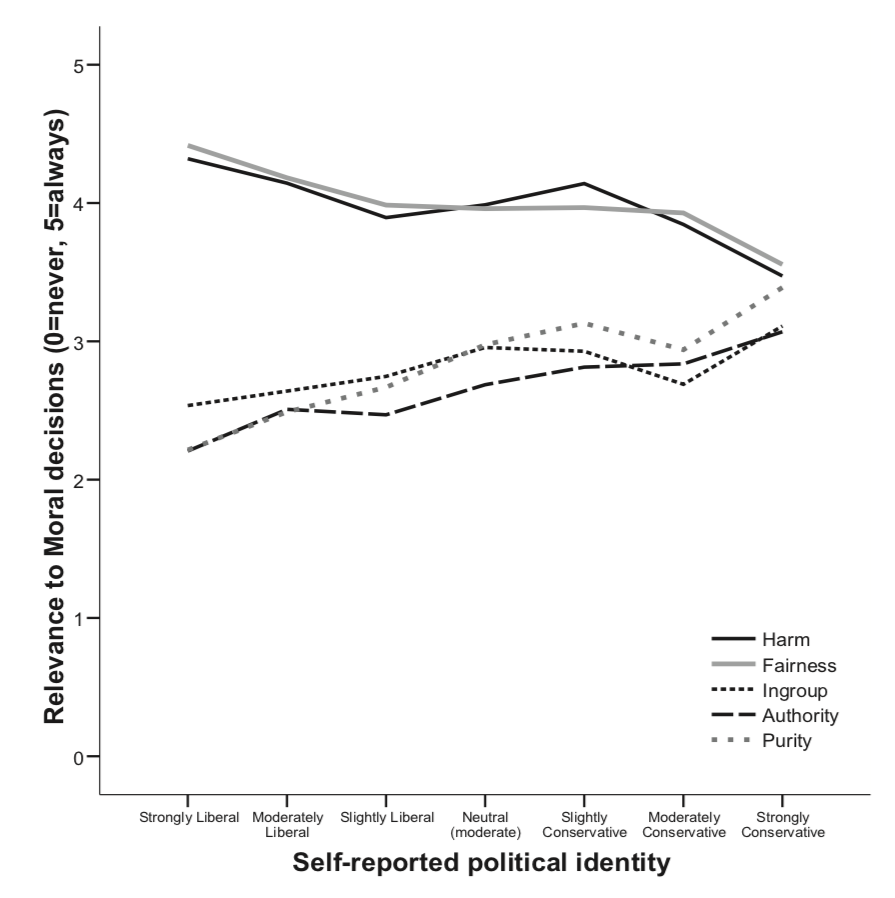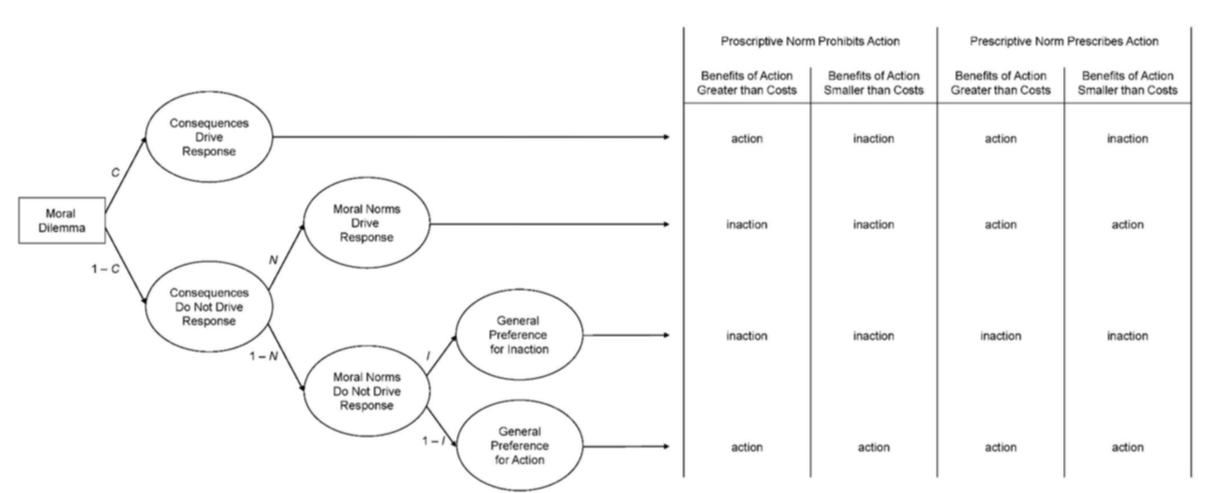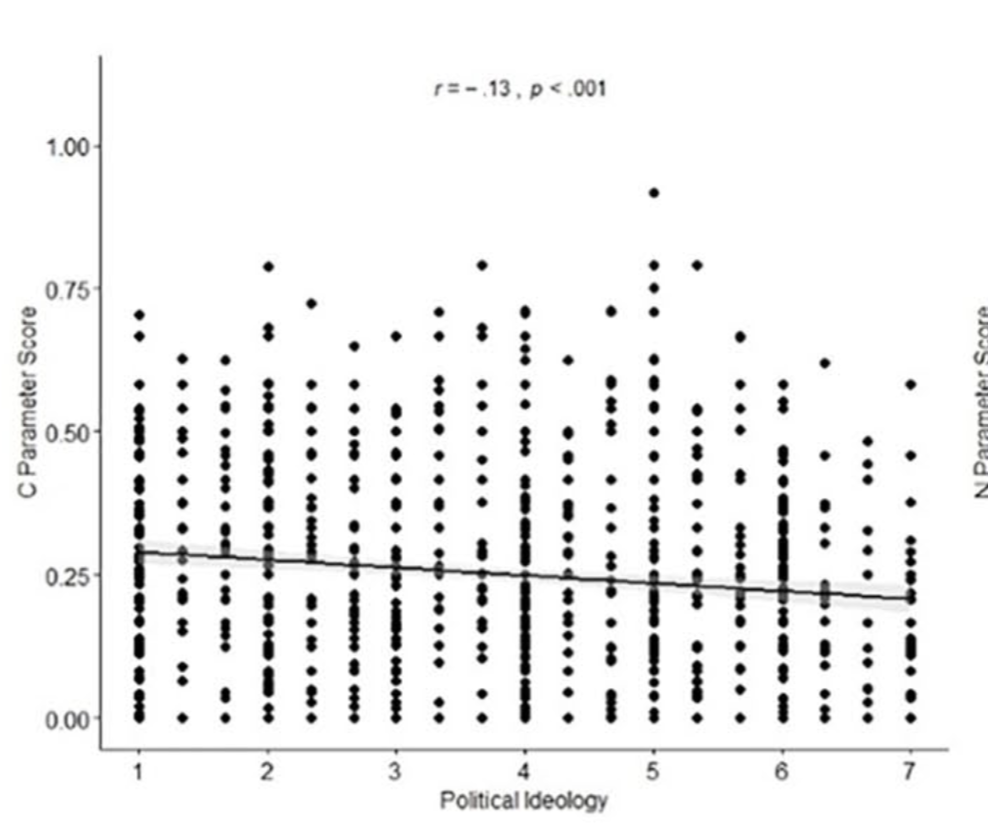Click here and press the right key for the next slide.
(This may not work on mobile or ipad. You can try using chrome or firefox, but even that may fail. Sorry.)
also ...
Press the left key to go backwards (or swipe right)
Press n to toggle whether notes are shown (or add '?notes' to the url before the #)
Press m or double tap to slide thumbnails (menu)
Press ? at any time to show the keyboard shortcuts
Moral Reframing and Process Dissociation
We encountered puzzles
which we are now in a position to resolve.
puzzle
If the evidence for cultural variation in moral psychology is at best weak,
and if the theoretical argument for moral reframing is flawed,
why does moral reframing seem to work?

[recall]
cultural variation
+ climate change literature stressing harm, fairness
explains political conflict
which moral reframing can overcome.
Why does moral reframing work?
hypothesis 1
match
There is cultural variation in moral foundations.
Reframing engages the morals of the target culture.
Moral engagement influences action.

Graham et al, 2009 figure 1
The Joan-Lars-Joseph objection
The evidence on cultural variation says socially conservative participants tend to regard all five foundations as roughly equally morally relevant.
key insight: how conservatives react should not depend only on their moral psychology (and not on liberals’ moral psychology).
puzzle
If the evidence for cultural variation in moral psychology is at best weak,
and if the theoretical argument for moral reframing is flawed,
why does moral reframing seem to work?
Why does moral reframing work?
hypothesis 1
match
There is cultural variation in moral foundations.
Reframing engages the morals of the target culture.
Moral engagement influences action.
hypothesis 2
source
Targets identify the source as an in-group
and so construe the message favourably
increasing willingness to act.
but: solid evidence for match!
The Match Hypothesis is well supported by evidence.
But we do not understand how it works.

Gawronski et al, 2017 figure 1

Luke & Gawronski (2021, p. figure 2 (part))
‘on average, conservatives are
less inclined to accept harmful actions for the greater good
than liberals. [And] liberals are
more sensitive to the consequences of a given action for the greater good
than conservatives’
(Luke & Gawronski, 2021, p. 10)
‘You can make a difference by recyling because you know it’s the right thing to do. Your actions can help care for others and allow the greatest good for society. Because of people like you, we can reduce the harm to others and to the environment by recycling. You CAN make a difference’
‘You can join the fight by recycling with those like you in your community. Your actions can help us do our civic duty because recycling is the responsible thing to do in our society. Because of people like you, we can follow the advice of important leaders by recycling. You CAN join the fight!’
problem 1: lack of scalar invariance
reply: process dissociation + MFQ-2
problem 2: Lars-Joan-Joseph Objection
partial reply: differences in moral psychology go beyond fairness and harm (L&G: consequences)
Why does moral reframing work?
hypothesis 1
match
There is cultural variation in moral foundations.
Reframing engages the morals of the target culture.
Moral engagement influences action.
hypothesis 2
source
Targets identify the source as an in-group
and so construe the message favourably
increasing willingness to act.
puzzle
If the evidence for cultural variation in moral psychology is at best weak,
and if the theoretical argument for moral reframing is flawed,
why does moral reframing seem to work?